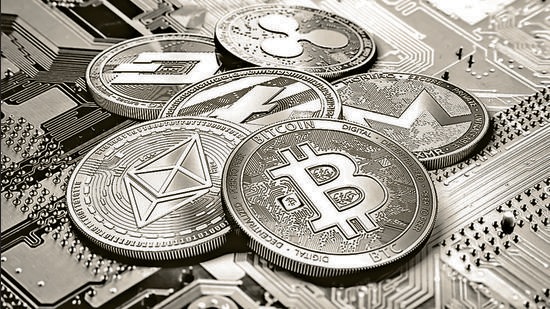India’s dilemma on cryptocurrencies
There is one of three paths that a State can choose. India can take advantage of financial innovation, while minimising misuse
When it comes to cryptocurrencies, governments of the world have arrived at one of three conclusions.

One, cryptocurrency is an inevitability. It cannot be banned or walled out through any meaningfully enforceable mechanism. Thus, regulation is required to offer investors a degree of protection, ensure compliance with norms, and provide clarity with regard to taxation. This seems to be the most common view, with countries such as the United States, the United Kingdom, and almost all countries in the European Union choosing to adopt some form of regulation.
Two, it represents a means to bypass sanctions or traditional geopolitical structures. Countries subscribing to this view have adopted bitcoin as legal tender (such as Cuba and El Salvador). Iran too saw the potential of cryptocurrency in helping circumvent sanctions, and encouraged “mining”, provided the resulting tokens are sold to the central bank (though, due to excessive electricity consumption, a four-month moratorium was imposed on mining in May).
Three, it is too volatile to be regulated effectively. Countries that subscribe to this view believe that private cryptocurrencies represent a threat to the integrity of the financial system, are too vulnerable to manipulation to be regulated as an asset and can enable illicit transactions in a myriad ways. Countries that ban the trading, holding, and mining of cryptocurrency include China, Bolivia, Nepal, North Macedonia, and Indonesia.
So where does India fall on this spectrum? From a reading of the 2019 interministerial report, the view seems to be one of caution. This is consistent with preceding Reserve Bank of India (RBI) circulars and press releases discouraging cryptocurrency trade, and warning investors of associated risks. Last week, in an interview with this newspaper, finance minister (FM) Nirmala Sitharaman reiterated the need to be cautious when it came to cryptocurrency and to “think it through”. She cited protests on the streets of El Salvador, following the adoption of bitcoin as legal tender, in support of her point.
So, it remains unclear which conclusion the government is likely to reach.
An outright ban would be difficult to sustain unless it is accompanied by a coordinated global effort to wipe out cryptocurrencies. While the government has exclusive rights in the legislative domain, the same is subject to the limits of legality, necessity, and proportionality imposed by the Constitution. In March 2020, the Supreme Court, in Internet and Mobile Association of India v Reserve Bank of India struck down an RBI notification imposing a blanket ban on all regulated entities from dealing or facilitating services for virtual currencies. While striking down the notification, the court found it to be violative of the Constitution and against the doctrine of proportionality — there was no evidence of the adverse impact argued to support the drastic measures advocated by RBI.
In August, the Madras High Court struck down legislation that introduced a blanket ban on online betting games. The court, in unambiguous terms, held that any legislation which introduces a wide-ranging ban can be struck down if it is found to be violating the least intrusive test or the doctrine of proportionality. Here it must be noted that the FM, in July, told Parliament that the government has not collected any data on, inter alia, narcotic drug trafficking and money laundering being committed through cryptocurrency exchanges. Thus, it would be difficult to advance the moral hazard argument in a vacuum.
Alternatively, if the government wishes to regulate, then it must necessarily bring more transparency to the ongoing pre-legislative process. When the Lok Sabha bulletin for expected bills was published on January 29, 2021, it included the Cryptocurrency and Regulation of Official Digital Currency Bill, 2021. The bill sought to “prohibit all private cryptocurrencies in India” while making exceptions for the use of the underlying technology.
Given that the bill wasn’t introduced, and the subsequent statements of the FM about the need to “think it through”, it can be inferred that the government is reviewing its position from that of a simple ban to something more nuanced.
In this regard three suggestions are important. One, if the government wishes to protect existing legitimate investors (currently estimated at anywhere between 7-10 million Indians), then it must publish a draft bill by way of forward guidance, and invite comments under the Pre-Legislative Consultation Policy of 2014 (currently more honoured in the breach than in the observance). Two, the government must impose duties on cryptocurrency exchanges to educate investors, so they may be able to distinguish between genuine private cryptocurrencies from ersatz ones. Three, evolve an approach on crypto mining with states. Electricity falls under the Concurrent List and taxes on consumption and sale of electricity fall under the State List. Thus, no decision can be reached without proactive engagement with state governments.
Currently, the trade of cryptocurrencies exists in a state of legal blankness. With any innovation, there is always a risk that it may bring unintended harm. Governments with vision seek to create a path that illuminates the best aspects of innovation while minimising its misuse. Governments that are protectionist seek to ban such innovations.
But for either choice to be legitimate, it must be made in consultation with people and in the full light of day.
Muhammad Ali Khan is the additional advocate general for Chhattisgarh in the Supreme Court. Omar Hoda is an advocate
The views expressed are personal
Continue reading with HT Premium Subscription




